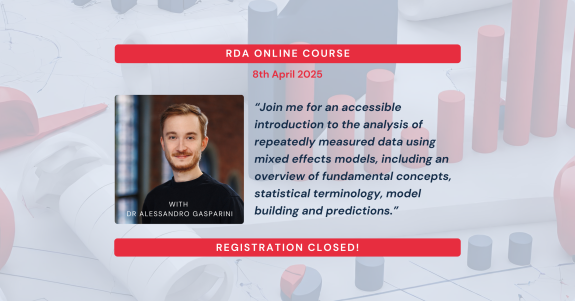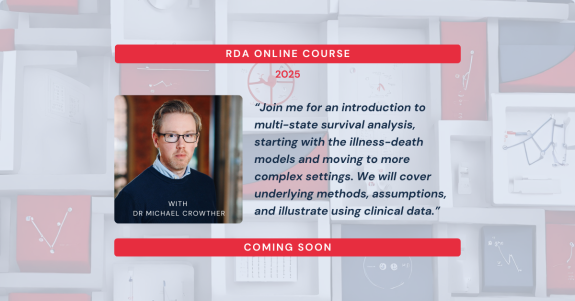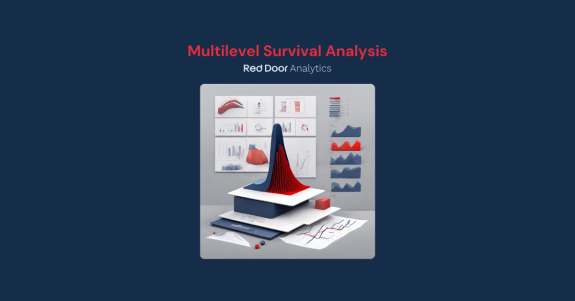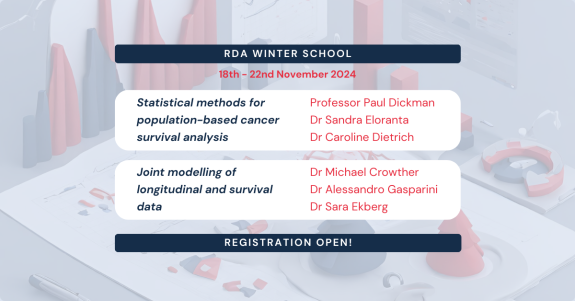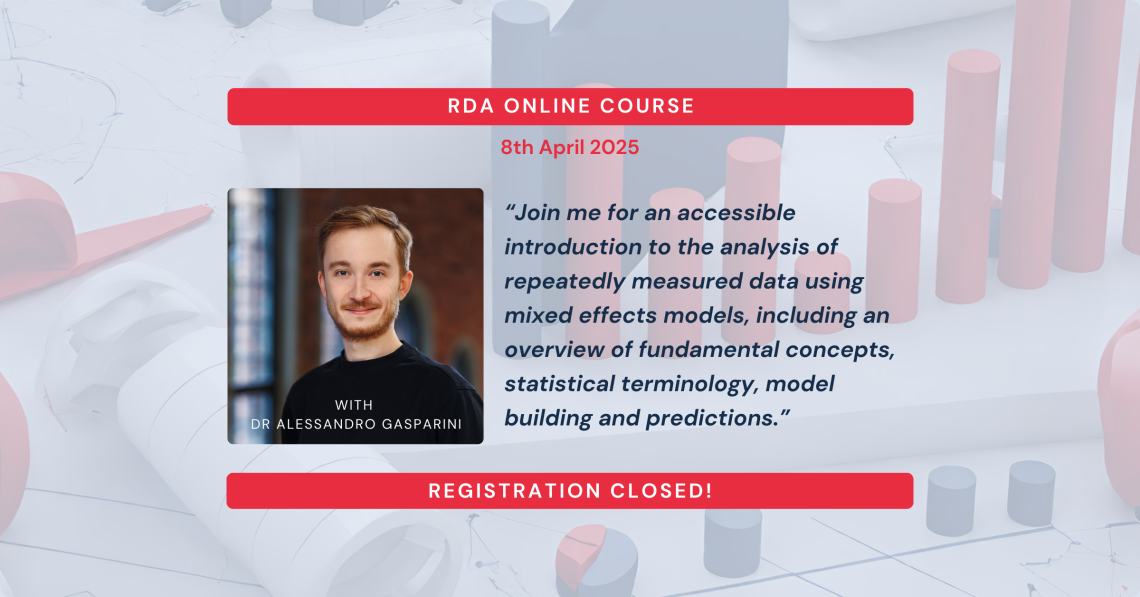
When
| Date | Time (CET) | Content |
| Tuesday 8th April 2025 | 09:00 – 12:00 | Lectures |
| 13:00 – 17:00 | Computer practical |
Where
This is a one-day online course consisting of lectures and a computer practical.
Course description
Longitudinal data refers to data that is repeatedly collected over time for each study subject. Compared to cross-sectional studies, longitudinal studies allow us to study changes over time, e.g., to quantify the change in the longitudinal response variable and identify factors that influence change.
This course will provide an overview of concepts, methods, and software for the analysis of longitudinal data, with a strong focus on mixed-effects models. Overview of lectures content:
- Overview of basic concepts in longitudinal data analysis, including notation. Introducing approaches for describing longitudinal data. Review of linear regression models, including interpretation of statistical interaction terms.
- Introduction to linear mixed-effects models and comparison with linear regression models. Introduction to random intercept, random intercept and slope models. We will also discuss model-building strategies, including approaches for selecting the random effects structure, the variance-covariance matrix structure, and the functional form of time.
- Introduction to post-estimation, model-based predictions that can be obtained after fitting linear mixed-effects models, including residuals. Both population-level and subject-specific predictions will be discussed and compared
Faculty
Alessandro Gasparini, PhD
Principal Statistical Methodologist
Red Door Analytics
What to expect
The course instructor has formal training in statistics and biostatistics and experience in developing statistical methods and applied clinical research. The course will consist of a mix of statistical concepts and applied examples, with emphasis on interpretation and practical aspects (such as computing). Course material, including lecture slides, tutorial exercises and solutions, and additional references for further reading will be provided.
Computing
The primary software for the course will be Stata (version 14 or higher), but full R solutions to all practical exercises will also be provided.
Who should attend?
Epidemiologists, statisticians, physicians, public health specialists or anyone with an interest in methods for studying longitudinal data. The course focuses on the analysis of longitudinal data in medical settings, but we welcome participants with interests in other areas; the methods we teach can be applied to other research areas as well.
Expected prior knowledge
We expect participants to possess basic knowledge of the fundamentals of epidemiology and biostatistics and be comfortable fitting and interpreting statistical models in epidemiology (e.g., linear regression, logistic regression, Poisson regression, or Cox regression). Prior basic knowledge of Stata will be assumed.
Course certificate
When the course is completed and attendance has been at least 80%, a certificate will be given.
Fees
| Early Bird (ends March 7th) | Regular (March 8th -) | |
| Academic | 2,250 SEK | 2,500 SEK |
| Industry | 3,250 SEK | 3,500 SEK |
| (All fees excluding VAT) | ||
Registration
Registration closed
To keep up to date on when the next edition of this course (and all our other courses!) will be running, scroll down to sign up to our newsletter!




